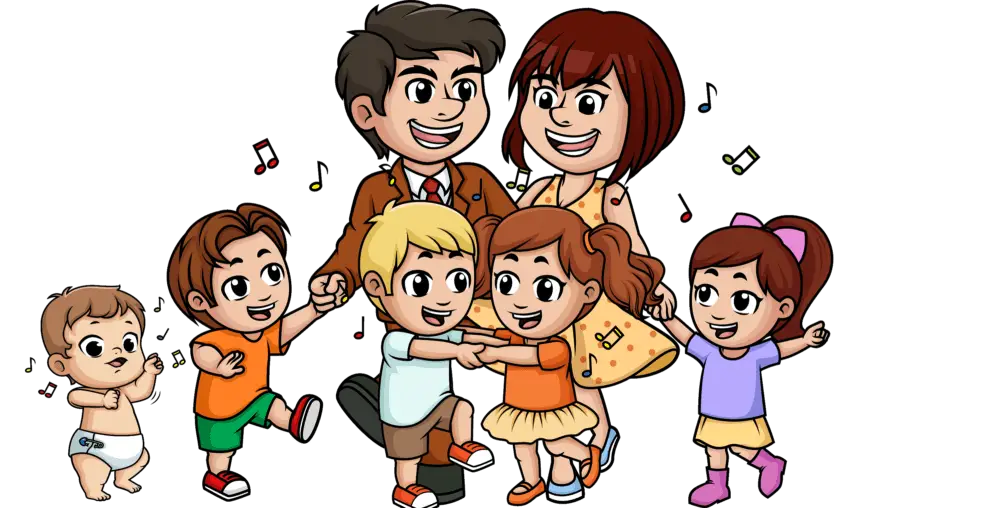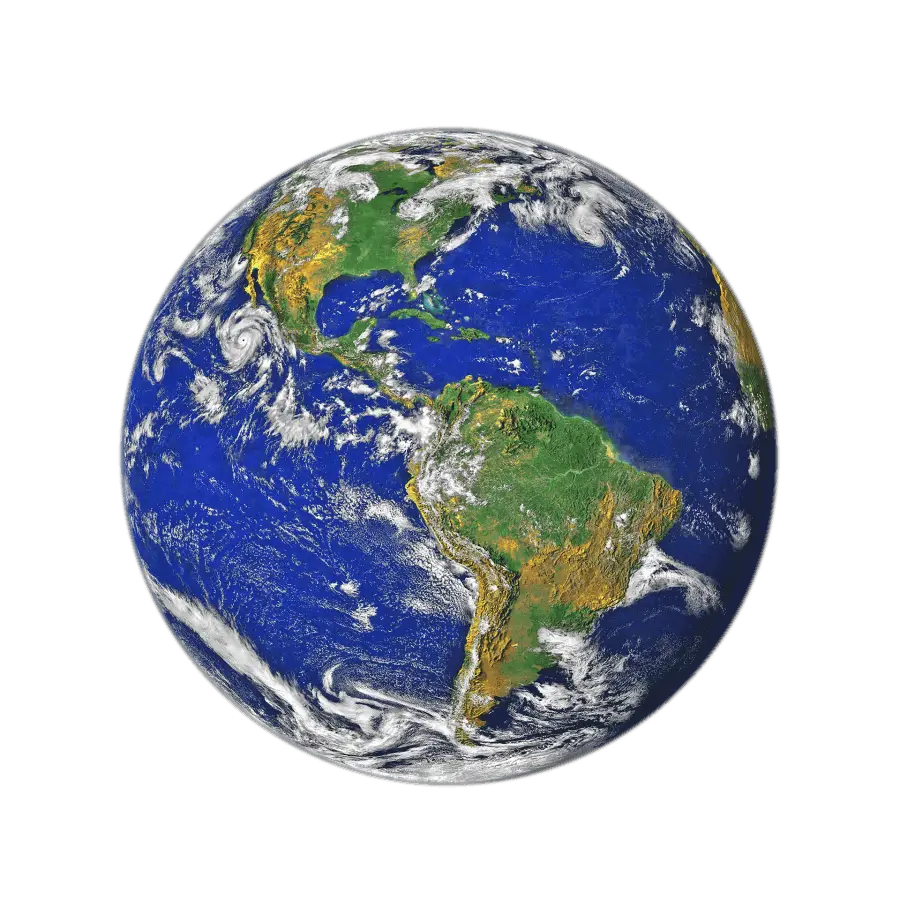
There is a definite bias against large families in today’s society. The question is, where does this come from? The truth is that it is based on several obvious misconceptions and even a few misleading claims. To get to the bottom of the issue, it is important to look at opinions based on facts and data, not simple preferences.
Large families are looked down upon because of errant claims of world overpopulation, lower quality of life, burdens they place on a countries economic systems, and individual family poverty. All of these claims are false at the least and spurious at the worst.
We need to separate preference which is based on inaccurate facts or not facts at all, and opinions correctly based on actual data. There is a moral, economic, and religious foundation that many large families stand on. They are fascinating to explore.
Do you have a large family full of your own Little Ninjas? Then you should check out my Online Karate Classes for preschool through elementary kids. For one price all the kids in the same household can take up to 12 classes per week. Click here to find out more details.
Contents
Overpopulation Claims Fuel Many Negative Views of Large Families.
One claim levied against those wishing to have more than two children comes in the form of a caution for an impact on the world. It is said by some that the world is reaching levels of population that will have a negative impact on its equalibrium.
This is further pursued by claims that food shortages will occur if the planet houses any more people and that production just can’t keep up. Poverty is also put forth as evidence to this overcrowding hypothesis.
Yet, is the world becoming too filled with eating, breathing, and breeding families? The answer may shock you.
Is the World Overpopulated?

The answer to this question starts with a seemingly irrelevant data factoid. It even seems to be in the realm of trivia. On closer examination though, you will find that it is highly relevant to the question.
What is the size of the state of Texas? In this instance, “big” won’t suffice. We are also not talking about its relative size to other states or countries. What we need to know is the actual square footage. Exactly how big is the state of Texas?
Texas has a total area of 7.48805 trillion (with a ‘t’) square feet.
Here is the second part of this question. How many people are there in the world?
According to the Population Reference Bureau, the population of the planet using data from the 2020 census is 7.8 billion. Do you see where this is going?
If you took every person in the world and plopped them down in the state of Texas in the United States, you could house every last one of them with 961.53 square feet of room to roam. That is the size of most two bedroom apartments.

Think on that for a moment. Now ask yourself, “Are those calling for a reduction in the world’s population or at least birth rates relying on data or scientific findings? Or are there other prejudices and agendas at play?”
This is further compounded by the fact that the world produces enough food to feed the planet’s current population nearly two times over.
The limits of food production capacity are no where in site. With innovations in food production and storage, triple the amount of people on the planet will not even cause a hiccup.
In this article by Medium, food production in the world is considered extremely efficient. So, why are people claiming large families could have an impact on hunger and food shortages? These statements certainly aren’t based in reality.
There seem to be other agendas at play.
Could Overpopulation Be Caused By Large Families?
This one can be logically refuted. It only takes someone looking at the statistics of how people actually live today.
The Impact On Raw Numbers Of People
Let’s look at the numbers of families with differing numbers of children in the United States as a sampling.
According to 2020 U.S. census data (raw data here) the population of the United States has nearly doubled since 1950. As this was happening, the existence of larger families consistently went down. Correlation is not causation, but what we can say is that the increase in population has nothing to do with large families.
Large families as a system of living that also regularly instill moral codes of how one has children. This means that men should not have children with more than one woman which happens in some sections of the United States more than families sharing the same house.
Having many children without the ethical bonds of families actually increase populations as well as a multitude of related social problems. Large families living as they were intended are in married relationships in the same household.
The Impact Of Large Families Vs Smaller Families On Communities
Then we have to be honest with the impact large families have on our communities versus smaller two parent families or single parent families. The fundamental principle that larger families live by is: sharing.
Instead of multiple houses or apartments, separate utility bills, and multitudes of cars, these families live under one roof, with one set of bills, and live a life dictated by the family carpool rule. If you are going somewhere, you are always dropping someone else off at their destination along the way.
The average footprint of a large family’s lifestyle on a town or city is much less than the same number of people living in many different households.
Then you have the crime and poverty rates that are in stark contrast between two parent families with multiple children and single parent homes without fathers.
A family without a father in the home is the single strongest indicator of poverty according to national U.S. data. This is also true about crime according according to this data.
The affect of large families on communities is overwhelmingly positive.
Critics Look Down On Large Families As Having A Lower Quality of Life?

This reason some use for considering a large family sub-par is actually based on a bias and preference and not on facts or data. We have to understand what is meant by quality of life.
Large families simply figure it out. Their days are full of life with quality to spare.
Some large families live a solid middle class life economically. Some are higher on this scale and some are lower. Though, is this the sole measure that quality of life is based on or is there more to it?
Most people really do know the answer to that question. I can sum up this one fairly simply. It is with a story.
I have taught exercise classes in retirement and assisted living homes for many years. I have had a mountain of great conversations with people living in their ‘golden years’. I learned one very important thing from talking to so many older people. It pertains to this question of quality of life and large families.
When the subject of what they wished they had done would come up, there was a consensus in the comments among everyone in these facilities that I knew. They all said they regretted one thing.
They regretted not having more children. That’s right. Most all of the stories I heard would eventually meander back to their children. This would inevitably lead to this one regret: Not having more kids.
I believe that says all there needs to be said about quality of life. The children we have in our younger adult stages have a direct impact on our lives then and on our lives in the future.
Of course, you will be hating life if you don’t raise them correctly and discipline them. They potentially could be a life long series of problems in that case. Yet, many take the role of raising kids with discipline and everyone’s lives are enriched beyond measure.
If you would like to read about a great way to build that type of discipline in your kids, check out my article here.
Do Large Families Place Undo Strain On A Country’s Economy?
If you ask any honest economist, they will tell you that the foundational element of Western societies is the nuclear family. This is father, mother, and multiple children. When a country has strong families, the country’s economy is able to grow in a steady upward direction.
A large and solid family not only doesn’t require assistance from the government, they actually contribute to it. As children grow they are taught to work hard, start, and provide for their own families. They understand contribution to community. They are born into the family community.
Even if they are not in the upper tiers of the socio-economic class of society, this doesn’t mean they are a drain on the system. On the contrary, they support it with moral and economic contribution.
Is Poverty in Some Large Families Proof Against Them?
This comes with personal experience.
Jackie my wife came from a family living in a 600 square foot house. She had three brothers, two older and one younger. Her two older brothers successfully served in the United States Airforce. Her dad to this day mows lawns for a living past his retirement years. Her mother used to clean houses to help out.
This was a decently large family living in what many would call poverty. Does this mean her parents should have stopped at two boys? Does this mean that she and her younger brother would have been better off not being born? That is what someone is insinuating when they state that poverty is a reason to limit the size of families.
Jackie was a straight ‘A’ student through every level of school. This carried on through undergrad and two graduate degrees. She has raised four great kids, two of which so far have received scholarships to large universities. Her oldest son went on to join the Airforce and has two daughters of his own.
Her younger brother is a successful truck driver and has traveled the country in a job he has loved for decades. He and I were friends for many years after his sister and I were married. He has two grown children that are starting families of their own.
The person with enough hubris to say that Jackie’s family was too poor to have that number of kids is by all estimations exponentially more of a drain on our society than her or her brother. That person and I should never meet.
The Large Families Takeaway…
We can see that large families are the backbone of our economy and society. Denying this and the role of fathers in the home has began to tear at the seams of the fabric of our communities.
Not only are large families a good thing for our country, but they are a necessary part. Without them we are not the people our founding fathers envisioned us to be.
